8 TO 11 JULY 2025
UNIVERSITY OF MINHO | BRAGA – PORTUGAL



Petra Todd is University Distinguished Professor of Economics at University of Pennsylvania.
Professor Todd is also a Research Associate of Penn’s Population Studies Center, NBER, and IZA. She serves on the editorial board of the International Economic Review and the Econometrics Journal. She is a fellow of the Econometrics Society and of the Society of Labor Economists (SOLE).
Her main fields of research are social program evaluation, labor economics, and microeconometrics. She has published papers on econometric methods for evaluating the effects of program/policy interventions, the determinants of cognitive achievement, testing for discrimination in motor vehicle searches, sources of racial and gender labor market disparities, pension program design and on conditional cash transfer programs.
She is currently working on projects analyzing the effects of personality traits on gender labor market disparities, evaluating the effects of grade retention in Portugal, analyzing the effects of local minimum wage policies in the US, and analyzing the effects of a nationwide preschool reform in Mexico.

Course outline
This course will examine econometric methods for evaluating effects of program interventions. Typical interventions that might be of interest include job training or other active labor market programs, education programs (such as school subsidy programs), or health programs.
The first part of the course will examine ex post evaluation methods that are applicable after the program has been implemented and data are available on persons who participated in the program and possibly also on a group of people who did not participate. We consider both the case where the program was randomly assigned and when assignment was not random. We will examine methods that include regression estimators, matching estimators, control function estimators, regression discontinuity methods, IV and LATE estimators, and MTE estimators.
The second part of the course will consider methods for ex ante evaluation, that is, methods for evaluating programs that do not yet exist or for evaluating alternative versions of existing programs. These methods typically make more extensive use of structural models. We will consider mainly static and dynamic discrete choice finite horizon models as frameworks for social policy evaluation.
Laboratory/practical sessions will be taught using statistical software, and participants are expected to bring their laptops.
Temporary licenses will be freely provided to participants during the summer school.
Ex post evaluation
Lecture 1: The evaluation problem, random assignment, regression estimators
Lecture 2: Review of nonparametric methods (kernel density and regression estimators)
Lecture 3: Matching, control function
Lecture 4: IV, LATE and MTE, RD estimators
Ex ante evaluation
Lecture 5: Use of static and dynamic discrete choice models for ex ante evaluation
Lecture 6: Estimating DCDP models and examples
Research Seminar: To be announced.
A graduate degree (MSc or PhD) in Economics, Management, Finance, Mathematics, Statistics, or closely related fields. We also welcome applications from qualified MSc students in these fields.
Please note that ECTS credits are not issued for this summer school.
We will reply to your message with instructions on how to proceed with the payment of the registration fee.
NIPE/EEG informs that photographs and/or video will be taken at this event for academic activity reporting purposes.
Personal data treatment and privacy policy
Registration in the summer school by qualified applicants is accepted on a rolling basis, meaning that the registration will close once it reaches the maximum intake of 40 participants.
| Early Registration: March 5th – June 30th, 2025 | |||
| Late Registration: July 1st – July 4th, 2025 | |||
| Early Registration: 650€ | |||
| Late Registration: 800€ | |||
| Students* (PhD, Master) early registration: 500€ | |||
| Students* (PhD, Master) late registration 650€ |
* Students need to provide a letter from their advisor confirming their student status;
A cancellation fee of 100 EUR is charged for cancellations until June 26th, 2025. No reimbursements will be made for cancellations after this date.
Fees cover attendance, lunches and two refreshments from Tuesday to Thursday (July 8–10), and a bus pass (provided upon registration) which allows you to use Braga’s public transport (TUB) at no cost during the summer school.
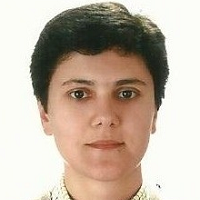
Maria José Martingo
E-mail: mjmartingo@eeg.uminho.pt

Nelson Areal
E-mail: nareal@eeg.uminho.pt

Susana Figueiredo
E-mail: nipe.summerschool@eeg.uminho.pt
Phone: +351 253 604 518
The summer school will take place at the School of Economics and Management, University of Minho, Braga, Portugal. EEG-UMinho was founded on 10 March 1982. It is an organic unit of education, research and interaction with society.
It focus on activities ranging from the sciences of economics to business administration and political science and international relations, and other related areas. It offers 8 Bachelor Programmes, 14 Master Programmes and 5 PhD Programmes, accounting for approximately 2500 students. The School is widely recognised for the quality of its research: it integrates 2 Research Units, one of which achieved a maximum rating of “Excellent” by the Portuguese Foundation for Science and Technology (FCT).
The closest airport to Braga is Francisco Sá Carneiro Airport, in Porto, which stands some 45 Km away from Braga. For GPS users, the coordinates to UMinho are (according to Google Earth): 41°33’41.00″N and 8°23’54.45″W.
The easiest way to get to Braga is by using the “get Bus”, which does daily transfers from the Francisco Sá Carneiro Airport to Braga.
Note that as an alternative, you can take the subway, Line Violeta to Campanhã Station [about 33 minutes, between 6am and 1:30am]. From there you should get the train to Braga. Information on train prices and timetables can be found in the CP website. Braga train station is 5 minutes walking distance from the city centre.
From Porto airport to Braga participants can also:
These are the hotels with which we negotiated special prices for Summer School participants.

| ***** | |
|---|---|
| SINGLE | |
| DOUBLE | |
| LOCATION | Near University (5 min walking distance) |
| NOTES | |
| Reservations: res.melia.braga@meliaportugal.com
|
|

| **** | |
|---|---|
| DOUBLE | |
| LOCATION | City centre |
| NOTES: | |
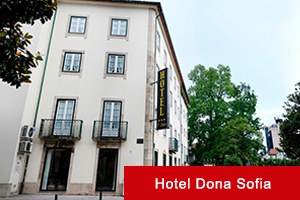
| *** | |
|---|---|
| SINGLE | |
| LOCATION | City centre |
| NOTES: | |
| Reservations: info@hoteldonasofia.com | |

| **** | |
|---|---|
| Hotel do Elevador; Hotel do Parque | |
| SINGLE | |
| DOUBLE | |
| LOCATION | Bom Jesus Mountain (10 min by car) |
| NOTES | |
| Reservations: | |
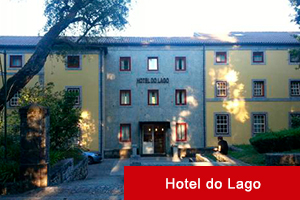
| *** | |
|---|---|
| Hotel do Lago and Hotel João Paulo II | |
| DOUBLE | |
| LOCATION | Bom Jesus Mountain (10 min by car) |
| NOTES | |

| *** | |
|---|---|
| SINGLE | – |
| DOUBLE | – |
| LOCATION | 10% discount on the prices marked on their website.Near University (10 min walking distance). |
| NOTES | |
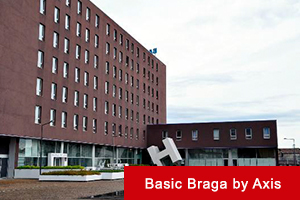
| *** | |
|---|---|
| SINGLE | |
| DOUBLE | |
| LOCATION | Braga train station (buses running to and from the university of Minho every 15 minutes). |
| NOTES | |
| Reservations: www.axishoteis.com
|
|
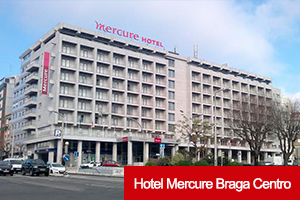
| SINGLE | |
|---|---|
| DOUBLE | |
| LOCATION | City centre |
| NOTES | |

| SINGLE | €- |
|---|---|
| DOUBLE | €- |
| LOCATION | |
| NOTES | |

Princeton University.

Princeton University

Syracuse University

University of Illinois

Universidade de Princeton, EUA

Universidade da Pensilvânia, EUA

New York University, EUA

Universidade de Nova Iorque, EUA
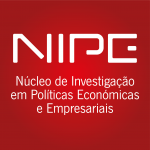
Universitu of Surrey
London Metropolitan University and University of Surrey

Cornell University

University of California – Davis

MTI

University of California, San Diego, EUA

University of Minnesota and Federal Reserve Bank of Minneapolis, USA

Michigan State University, USA

Institute for Fiscal Studies, London

Birkbeck College – London